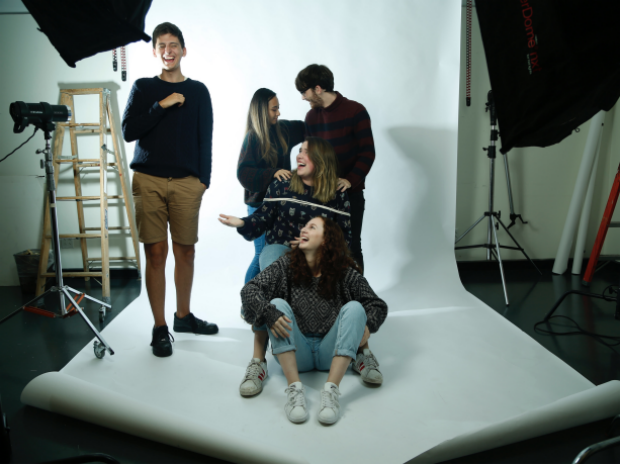From building a carbon-neutral film set to a starting podcast about climate change, eight students and faculty members received Green Grants to finance their eco-friendly projects from the Office of Sustainability last month.
Tisch senior Vanneeda Keowmang will use her Green Grant — which awards up to $20,000 — to create a carbon-neutral set for a television pilot called “Mary and the Mob,” produced by the Advanced Television class at Tisch Film. Film sets often buy single-use products like water bottles or markers in bulk — products that can increase the project’s carbon footprint.
“Productions buy a case of plastic water bottles a day for the crew, but since you can’t have those bottles on you while you work, you end up with tens of half-drank bottles lying all over and a production assistant has to come around and toss them,” Keowmang said in an email to WSN.
With about 300 intermediate and advanced productions done by juniors and seniors in Tisch per semester, film sets can accumulate a huge amount of single-use products that take a long time to decompose. Keowmang said she hopes to apply a step by step process to ensure the set of “Mary and the Mob” is as environmentally friendly as possible.
“Film sets are notoriously wasteful, serving up to about three or four bags of trash a day on a student set,” Keowmang said. “In terms of trash management, we had four bins on set — mixed recycling (plastic, cans, glass), paper, compost and trash.”
In addition, Keowmang encourages the use of sustainable makeup products for actors, reusable batteries and organic, responsibly sourced snacks for the cast and crew.
NYU Abu Dhabi sophomore Lubnah Ansari wants to apply her grant to a menstruation initiative she began in 2017. Ansari worked with NYUAD’s Health Promotions Office and an on-campus student group centered around sustainability and environmental justice called Ecoherence on the program, which encouraged the use of environmentally-friendly menstruation products.
Ansari wrote an article for The Gazelle, NYUAD’s student newspaper, where she analyzed chemicals such as bleach and pesticides found in menstrual health products that can harm women’s physical health. Ansari’s alternative is to use menstrual cups or reusable pads. For those who do not wish to transition from tampons, she suggested using organic cotton tampons, but stressed that they also contain non-biodegradable elements.
Jasmine Soltani and Regina Cantu de Alba, research residents from the Interactive Telecommunications Program at Tisch, will use their grant to create a workshop that discusses how to repurpose electronics.
“This project builds on a free store area for abandoned and/or discarded materials and projects, and an electronics garage sale organized by students that allows for re-selling of used materials,” Soltani wrote in an email to WSN.
Soltani noted that the electronics found in the free store include optical equipment, circuit boards and home devices. Soltani hosts workshops with students, teaching them how to reuse the electronic equipment. In one workshop, students learned to deconstruct things like a fax machine and a foot massager.
GSAS assistant professor Elaine Gan will create a podcast called the Multispecies Worldbuilding Lab meant to spread knowledge and awareness concerning climate change across generations. Tandon Ph.D. student Omar Gowayed will receive his third Green Grant to teach a vertical farming class to 17 students and volunteers.
Vertical farming uses space more effectively — which can be especially useful in places where space is scarce such as cities — by stacking plants on top of one another rather than planting them side-by-side. Gowayed’s class will expand on his existing aquaponic farming project in the Tandon School of Engineering’s Makerspace, which utilizes underwater plants.
“We put plants in water and their roots are suspended in fish waste, which we use as fertilizer,” Gowayed said to WSN.
In addition to his projects, Gowayed’s students plan to pursue their own, such as teaching middle school students about vertical farming or researching types of bacteria.
In order to qualify for the award, members of the NYU community had to write both a proposal and an expression of interest that details their budget and scope. The university has funded more than 100 projects such as these over the years, according to Director of Sustainability Dianne Anderson.
“We look forward to continuing to support the incredible wealth of ideas coming from the NYU community,” Anderson wrote in an email to WSN.
A version of this article appeared in the Monday, April 8, 2019, print edition. Email Alexandria Johnson at [email protected].
























































































































































